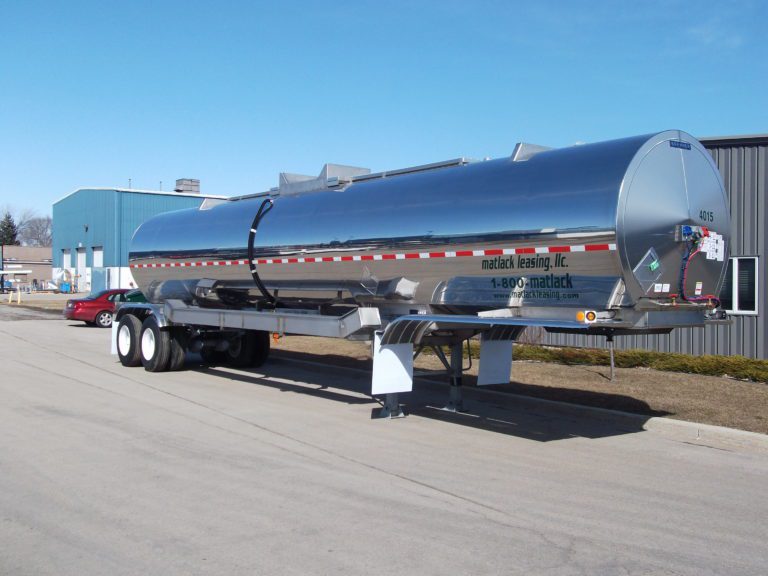
The U.S. economy is rebounding from the coronavirus shutdowns of early 2020, but the supply chain is still experiencing major bottlenecks caused by everything from raw material and component shortages, to backlogs and labor shortfalls. This article looks at the key forces driving the transportation logistics challenges that stakeholders are experiencing today.
Why is there a Shortage of Tank Trailers?
Manufacturers, distributors, transportation logistics companies, and others dependent on the supply chain are having a difficult time finding cargo trailers. One reason is that consumer spending rebounded faster than expected rapidly increasing demand following the COVID-19 shutdown. According to Sean Kenney, chief sales officer for Hyundai Translead, “Generally, demand has been so high that requests for 2021 have essentially blended into 2022. The industry simply needs equipment as fast as can be managed.” On the other side of the equation, production is down and there are backlogs on equipment orders double or triple what they were a year ago. This stems from the fact that suppliers continue to face significant labor shortages, and scarcity in steel, aluminum, and microchips are driving up costs. There are very long lead times on materials needed for production, if they are available at all..
How has the Shortage of Steel in the US Contributed to Longer Lead Times for Trailer Leasing?
Of the shortages in raw materials, the shortage in steel may have the biggest impact on the supply chain and transportation logistics. Steel is used in everything from tanker chassis to component parts in many industries. At the beginning of the pandemic, U.S. Steel shut down its blast furnaces and some did not open again until the end of 2020. This resulted in severe production losses for the industry and fears of bankruptcy for US Steel, but with the reopening of the economy, there is a steel industry boom as manufacturers struggle to obtain the needed quantities of this material. Mills have been slow to resume production, and the U.S. benchmark for hot-rolled coil steel prices, which bottomed out at $460 last year, were sitting near $1,500 a ton. This combination of scarcity and high prices has led to longer lead times for trailer leasing and across the supply chain in many industries. With long production backlogs and rapidly fluctuating steel prices, manufacturers have been known to take a pause on quoting orders for new equipment due to uncertainty in the price and availability of materials.
How are Shortages in Microchips Disrupting the Supply Chain?
Microchips, which are used in everything from video games to vehicle technology systems, are also a culprit in the tank trailer shortage. Together, Taiwan, South Korea, and China hold 87% of the global market in semiconductor production. These countries have struggled to meet increases in demand due to a wide range of issues including pandemic-related delays and U.S. sanctions against China. The result is a dramatic increase in availability and lead time. According to a recent IHS Markit report, “today’s issues in the semiconductor production have approximately doubled the normal lead time.” Considering that a class 8 (heavy-duty) truck typically requires between 15 and 35 semiconductor chips per vehicle, it is not hard to see how the microchip shortage is having a devastating impact on transportation logistics in the U.S.
Why are the Shipping Ports Backed Up?
Driven by pandemic-related production interruptions, ports in L.A. and Long Beach experienced extreme changes in cargo volume. In March 2020, volume fell under 1 million twenty-equivalent units (TEUs), but nearly doubled to 1.8 million TEUs a year later. In ideal circumstances, these cargo swings would be met with sufficient labor and storage capacity at warehouses, and available transportation equipment to disperse and alleviate the influx. However, that hasn’t happened, resulting in supply chain bottlenecks and transportation logistics interruptions. Leading maritime economist John Martin, Ph.D. noted: “Warehouses are filled, causing back-ups all the way to port terminals, made worse by shortages of shipping containers, rail cars, trucks, trailers and chassis to meet the enormous demand.”
Which Problems in the Supply Chain Pre-date the Pandemic?
While many of the current supply chain disruptions are attributable to the pandemic, some of the culpability lies in pre-pandemic problems. One of the crucial issues in the supply chain that existed before the pandemic is the shortage of truck drivers. In terms of transportation logistics, an American Trucking Association (ATA) report notes that there was a shortfall of 60,800 drivers at the end of 2018, a 20% increase from 2017. The ATA estimates a shortage of 160,000 drivers by 2028. Similar issues are happening in U.S. manufacturing plants, where it is hard to attract and retain workers. According to a Manufacturing Institute study, as many as 2.1 million manufacturing jobs will be unfilled through 2030.
Matlack Leasing offers Liquid Bulk Transportation and Storage Solutions
Matlack Leasing is one of North America’s leading lessors of tank trailers and tank chassis, with a fleet of approximately 3,000 units. With today’s supply chain challenges, it pays to work with a company you trust. Matlack offers inventory nationwide, as well as industry knowledge, and flexible lease terms. Contact us to see how we can help you grow your business.
Sources:
- Potts, Justin “Why Can’t I Find a Trailer? Why are Trailer Prices so High? Here’s Why”. Advantage Trailer Blog, 25 Mar. 2021,
- Van Tighem, Gregory “High Demand, Rising Component Costs put Pressure on Trailer Production”. Transport Topics Blog, 9 Jul. 2021
- Cannon, Jason “Truck and Trailer Build Rates Falling in the Face of Pent-up Demand”. CCJ Digital Blog, 22 Aug. 2021,
- Schueller, Erica “Trucking Industry Challenges with the Semiconductor Shortage”. Fleet Owner Blog, 5 May 2021
- Burnson, Patrick “Cargo Congestion on West Coast is a Consequence of Complex Issues”. Logistics Management Blog, 22 Jul. 2021,
